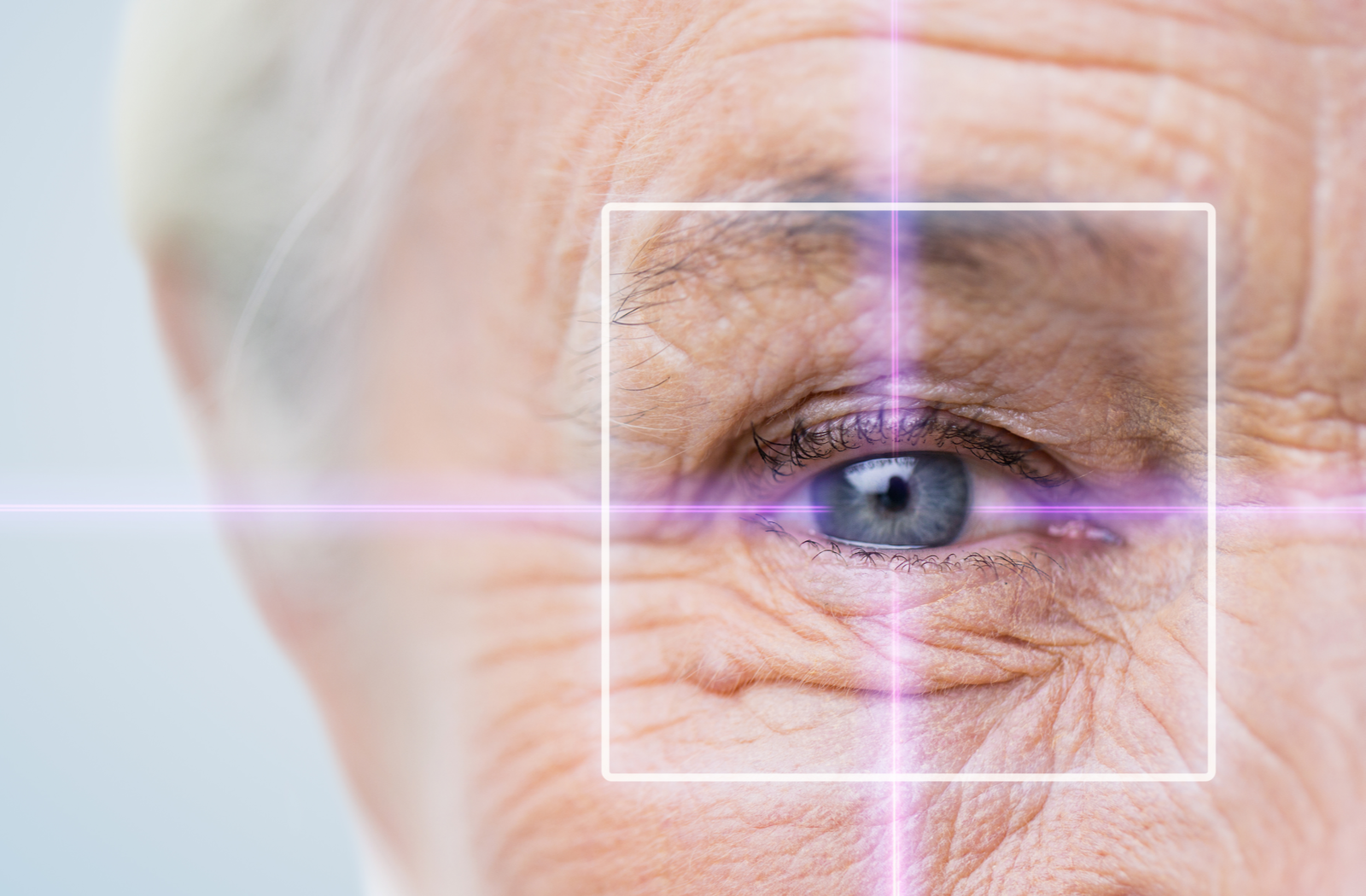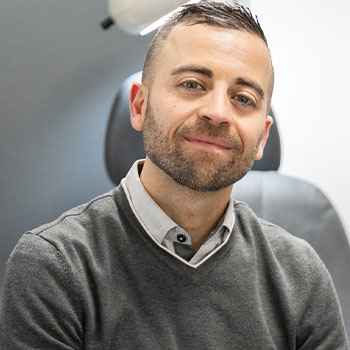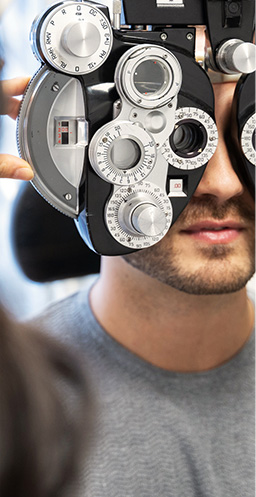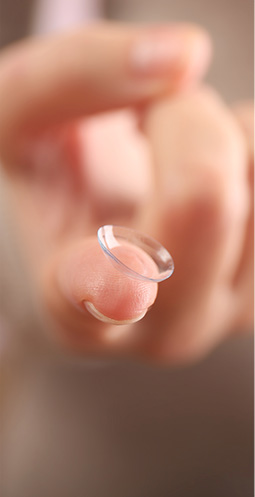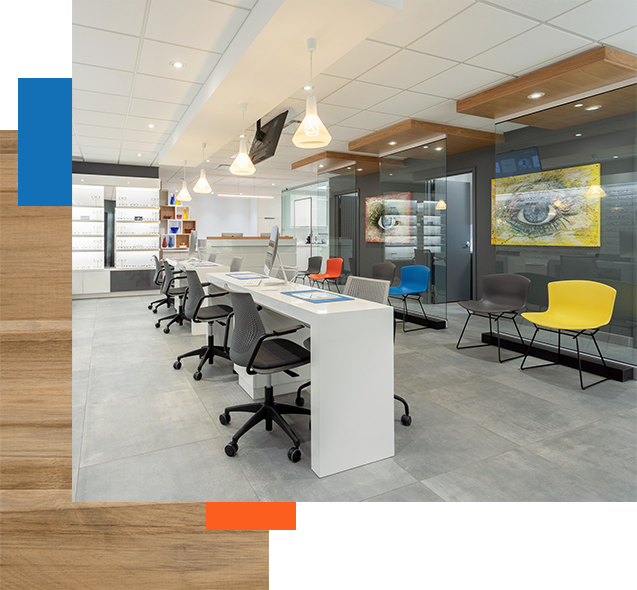Laser eye surgery can correct several common vision problems, but the process is different for every application. Many people undergo laser eye surgery for presbyopia each year, which differs from laser eye surgery for other conditions.
What happens if you get laser eye surgery to correct presbyopia? How long will recovery take, and what risks are involved? Don’t worry; we’re about to answer all those questions. Our practice has spent years providing laser eye surgery consultation for patients with a variety of conditions, and we’re happy to clear up the mysteries surrounding this useful procedure.
What is Presbyopia?
Presbyopia occurs when the lens in your eye becomes more rigid with age. As the lens loses flexibility, it becomes less able to change shape. Since the lens must change shape to focus your vision at different distances, presbyopia blurs your vision when looking at nearby objects. It can also blur your vision when changing your focus to look at something in the distance.
Presbyopia normally begins to affect people when they are over 40 years old, but it affects almost everybody at some point as they age. Other risk factors for early-onset presbyopia include:
- Farsightedness (hyperopia)
- Diabetes
- Multiple sclerosis
- Cardiovascular disease
- Specific antidepressants, diuretics, antihistamines, and other drugs
What is Laser Eye Surgery?
Laser eye surgery is a blanket term that covers several different procedures. Each type of laser eye surgery uses a laser to remove or reshape tissue from parts of the eye with ultraviolet light pulses.
There are two main types of laser eye surgery used to correct vision problems: LASIK and PRK. Below is a brief description of each type:
LASIK
During LASIK, the laser creates a thin flap in the cornea. Once the flap is lifted, the laser reshapes the area underneath, and the flap is replaced. This process allows the cornea to accurately focus light onto the lens when focusing at specific distances. Patients can normally see clearly after just a few days (although complete healing takes at least a few weeks).
PRK
Instead of creating a flap, PRK removes the entire surface layer of the cornea and uses the laser to reshape the area underneath it. A contact lens or eye patch is then applied to protect the eye while the cornea heals. PRK can require up to a month of healing before full vision is restored.
How is Laser Eye Surgery Different For People with Presbyopia?
LASIK and PRK can alter the surface of your cornea, but they can’t prevent the lenses in your eyes from aging or losing flexibility. As such, you might assume that laser eye surgery can’t help you deal with presbyopia at all—but that’s not necessarily true.
In most cases of presbyopia, one eye naturally adapts to see nearby objects better while another adapts to see distant objects more clearly. Laser surgery can be used to optimize the dominant eye for focusing on objects at a distance, and the non-dominant eye for focusing on objects that are close at hand. This process is called monovision, and it can be achieved with either LASIK or PRK.
What Risks Come with Laser Eye Surgery For Presbyopia?
Monovision can drastically reduce your need for glasses, but it can also present difficulties for some people. If you decide to have monovision via LASIK or PRK, you need to be aware of the following risks and evaluate them:
- For monovision to work, the brain must adapt to the vision correction for each eye. Sometimes the brain struggles to adjust properly, causing pain and worse vision in low-light conditions.
- Monovision can affect depth perception, causing problems when driving or performing other tasks requiring strong spatial vision.
- There are also some anecdotes of patients struggling to adjust to monovision. However, patient satisfaction from laser eye monovision surgery remains generally high. One study found that LASIK monovision increased vision satisfaction in presbyopic patients from roughly 65% to over 85%.
Fortunately, it’s easy to “try before you buy” with monovision. Your eye doctor can provide you with trial monovision contacts to give you a taste of what life with monovision will be like. If you find the adjustment easy, you may be a suitable candidate for laser eye monovision surgery.
Ask Your Eye Doctor about Laser Eye Surgery for Presbyopia
Laser eye surgery isn’t for everyone, so you’ll need to have a thorough discussion with your eye doctor to determine whether it can help you manage presbyopia. Your age, medical history, and other factors will all be relevant, so make sure to answer your eye doctor’s questions clearly.
Ultimately, laser eye surgery can provide meaningful relief for people with presbyopia, improving their vision and their quality of life. If you’ve found yourself struggling with this condition, monovision could be just what the eye doctor ordered.


